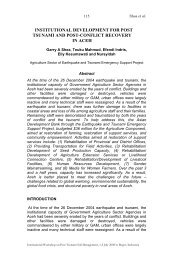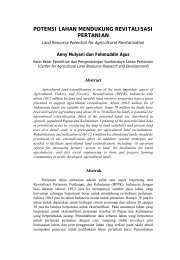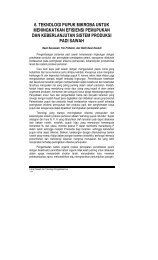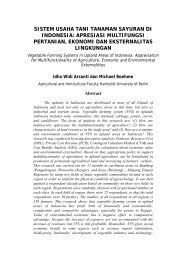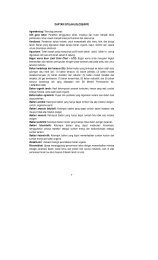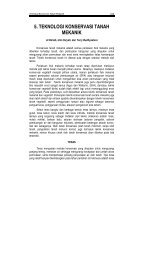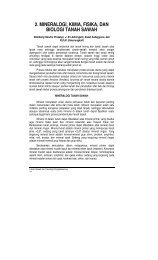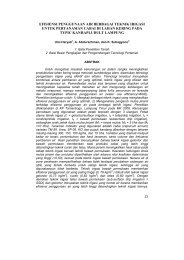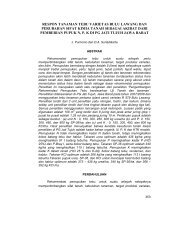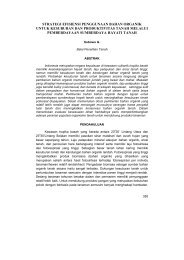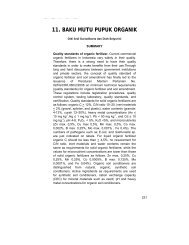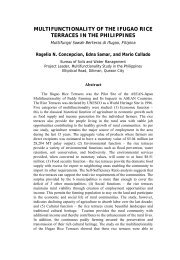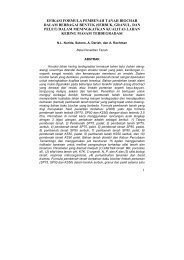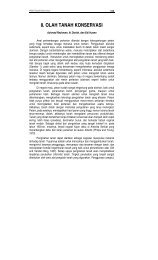Proceedings - Balai Penelitian Tanah
Proceedings - Balai Penelitian Tanah
Proceedings - Balai Penelitian Tanah
Create successful ePaper yourself
Turn your PDF publications into a flip-book with our unique Google optimized e-Paper software.
75<br />
POST-TSUNAMI AGRICULTURE<br />
LIVELIHOOD RESTORATION<br />
NAGAPATTINAM, TAMIL NADU, S. INDIA:<br />
A DISTRICT-LEVEL CO-ORDINATION EFFORT<br />
GM Chandra Mohan<br />
NGO Co-ordination and Resource Centre (NCRC)/<br />
Bedroc For Concern Worldwide India<br />
Abstract<br />
Mohan GMC<br />
Nagapattinam, a coastal district in Tamil Nadu had the highest extent<br />
of agricultural land affected by tsunami in the Indian sub-continent<br />
totalling around 7,000 hectares which included all types of land. The<br />
government’s survey of damages and the package proposed for<br />
reclamation had its own limitations. At a time that NGOs and donors<br />
gave lesser priority to agricultural reclamation (early 2005), the NGO<br />
Co-ordination and Resource Centre – NCRC, took up the cause and<br />
reassessed the damages and evolved a comprehensive package of<br />
activities (with the active participation of all stakeholders). The<br />
damages and package were presented to the Disasters and<br />
Emergencies Committee (DEC) – a group of donor organizations<br />
which led to an understanding of the situation and their coming<br />
forward to support NGOs. NCRC conducted a series of workshops<br />
and meetings to improve NGOs understanding of agriculture and its<br />
importance and later played a key role in linking them with donors.<br />
A common shared understanding was developed among NGOs in<br />
terms of a uniform package and methodology and approach in<br />
implementation. The comprehensive package included three sets of<br />
activities, ‘immediate’ for desalination, ‘short-term’ for restoring soil<br />
fertility and ‘long-term’ for sustaining the farm in the long-run. A lot of<br />
advocacy effort was taken up with individual NGOs and their donor<br />
agencies to bring about commonality.<br />
Participatory area (village) allocation for the NGOs was completed in<br />
decentralized meetings in the presence of line departments and the<br />
farming community, ensuring working in contiguous areas. 23 NGOs<br />
implemented the common package across 42 revenue villages<br />
working with 297 Tsunami Farmers Self Help Groups (TFSHGs).<br />
Simultaneously, mass information dissemination about the package<br />
was done through printed brochures and local FM radio. NGO staff<br />
capacities were built through one-off training programmes. Effective<br />
implementation of activities was also ensured through direct<br />
monitoring visits and regular review meetings.<br />
International Workshop on Post Tsunami Soil Management, 1-2 July 2008 in Bogor, Indonesia



